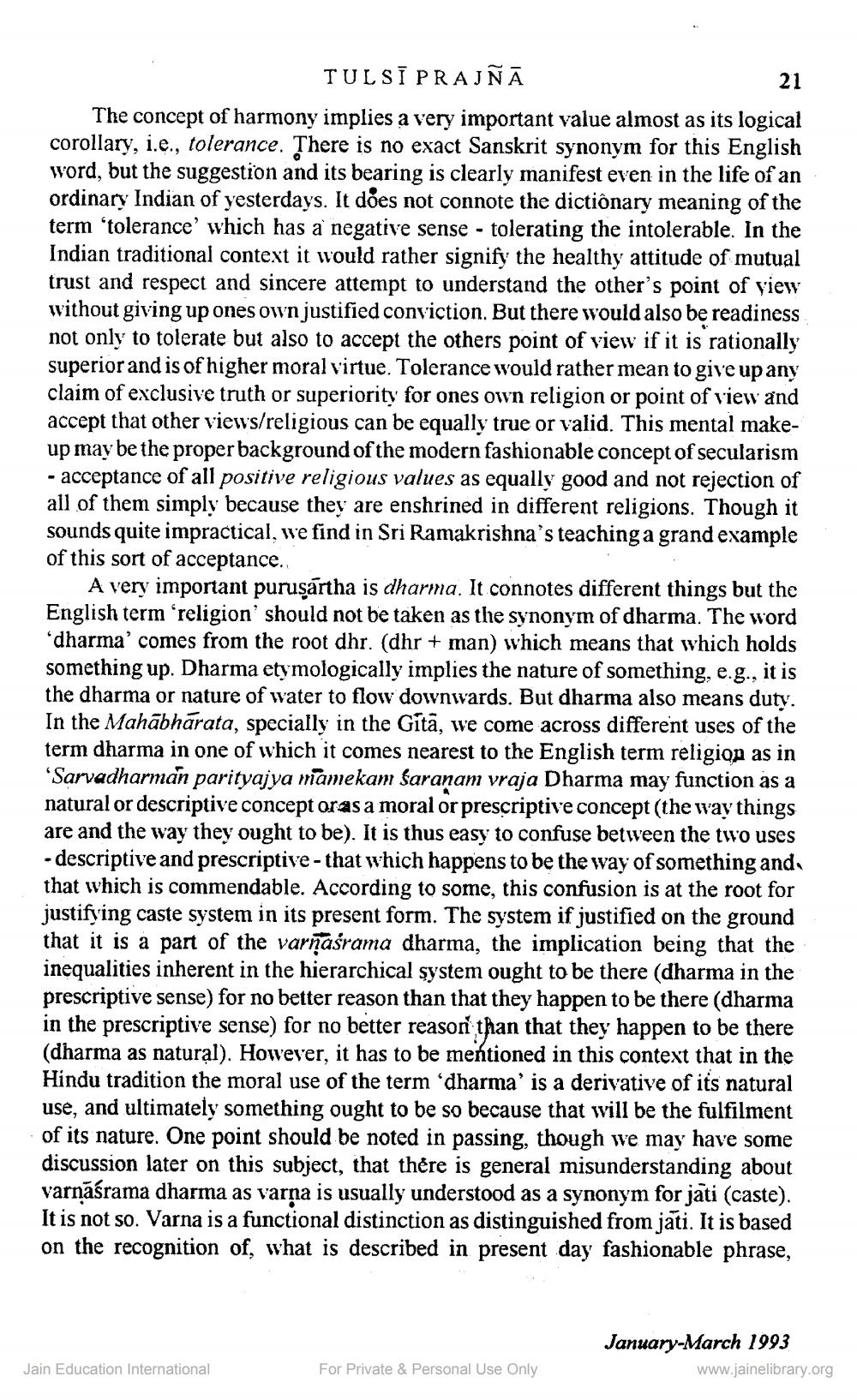________________
TULSI PRAJNĀ
21
The concept of harmony implies a very important value almost as its logical corollary, i.e., tolerance. There is no exact Sanskrit synonym for this English word, but the suggestion and its bearing is clearly manifest even in the life of an ordinary Indian of yesterdays. It does not connote the dictionary meaning of the term 'tolerance' which has a negative sense tolerating the intolerable. In the Indian traditional context it would rather signify the healthy attitude of mutual trust and respect and sincere attempt to understand the other's point of view without giving up ones own justified conviction. But there would also be readiness not only to tolerate but also to accept the others point of view if it is rationally superior and is of higher moral virtue. Tolerance would rather mean to give up any claim of exclusive truth or superiority for ones own religion or point of view and accept that other views/religious can be equally true or valid. This mental makeup may be the proper background of the modern fashionable concept of secularism - acceptance of all positive religious values as equally good and not rejection of all of them simply because they are enshrined in different religions. Though it sounds quite impractical, we find in Sri Ramakrishna's teaching a grand example of this sort of acceptance..
-
A very important puruṣartha is dharma. It connotes different things but the English term 'religion' should not be taken as the synonym of dharma. The word 'dharma' comes from the root dhr. (dhr + man) which means that which holds something up. Dharma etymologically implies the nature of something, e.g., it is the dharma or nature of water to flow downwards. But dharma also means duty. In the Mahabharata, specially in the Gita, we come across different uses of the term dharma in one of which it comes nearest to the English term religion as in 'Sarvadharman parityajya mamekam Saranam vraja Dharma may function as a natural or descriptive concept oras a moral or prescriptive concept (the way things are and the way they ought to be). It is thus easy to confuse between the two uses - descriptive and prescriptive - that which happens to be the way of something and、 that which is commendable. According to some, this confusion is at the root for justifying caste system in its present form. The system if justified on the ground that it is a part of the varnasrama dharma, the implication being that the inequalities inherent in the hierarchical system ought to be there (dharma in the prescriptive sense) for no better reason than that they happen to be there (dharma in the prescriptive sense) for no better reason than that they happen to be there (dharma as natural). However, it has to be mentioned in this context that in the Hindu tradition the moral use of the term 'dharma' is a derivative of its natural use, and ultimately something ought to be so because that will be the fulfilment of its nature. One point should be noted in passing, though we may have some discussion later on this subject, that there is general misunderstanding about varnasrama dharma as varna is usually understood as a synonym for jati (caste). It is not so. Varna is a functional distinction as distinguished from jati. It is based on the recognition of, what is described in present day fashionable phrase,
Jain Education International
For Private & Personal Use Only
January-March 1993 www.jainelibrary.org




